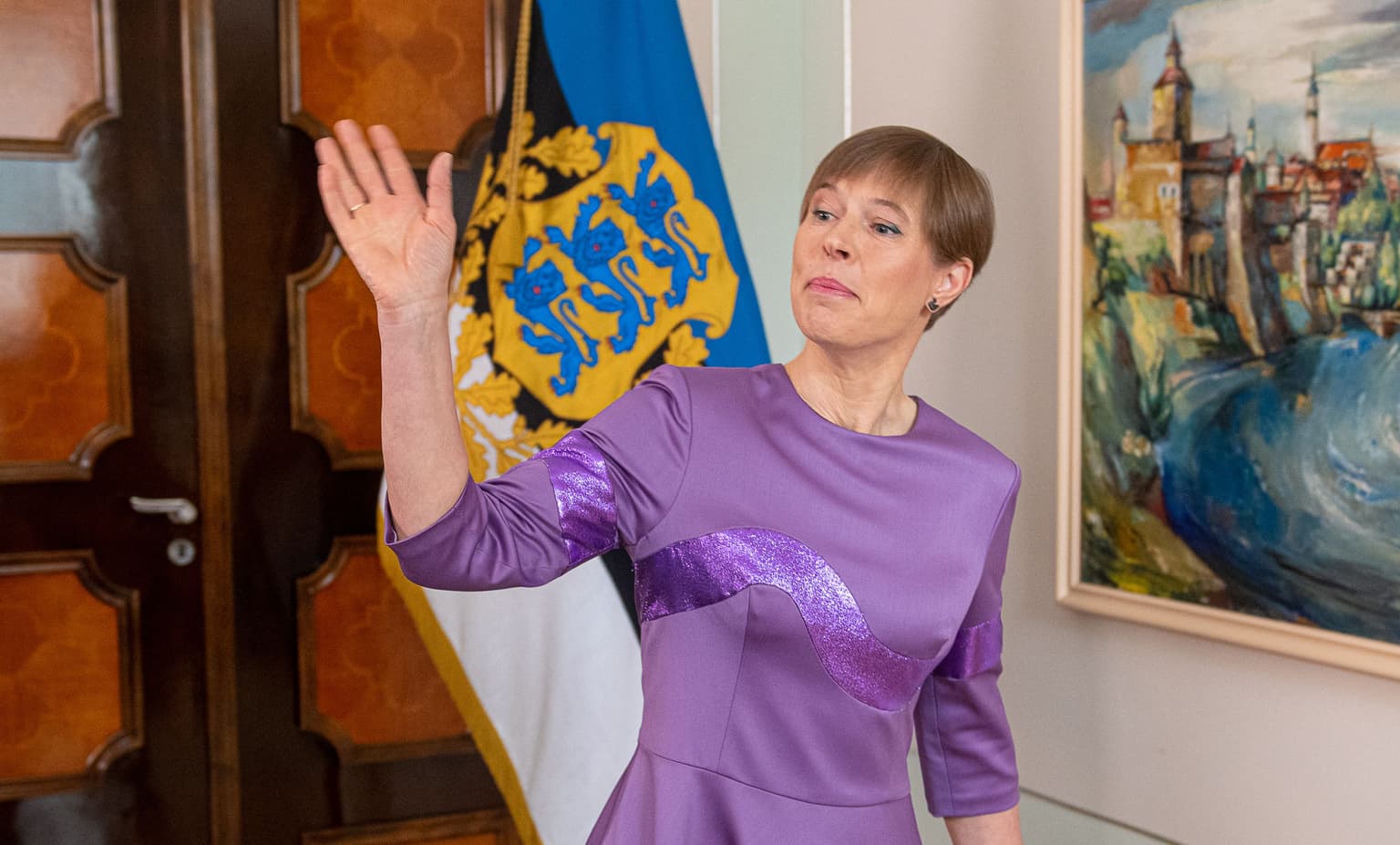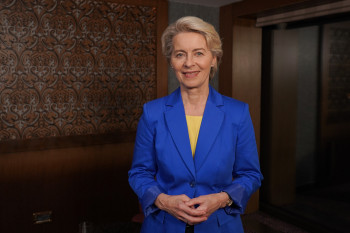Estonia’s ex-President Kaljulaid: Bringing Ukraine closer to EU can set example for Russia

Estonia has shown unwavering support for Ukraine ever since Russian forces started their all-out invasion in February. And this support has not faltered.
Estonia has provided Ukraine with defense assistance worth about 250 million euros – the equivalent of one-third of Estonia's annual defense budget and nearly 1% of its GDP.
The Baltic state leaders have also been among those asking the European Union to take a stronger stance against Russia amid its unprovoked war, imposing stricter sanctions. Kersti Kaljulaid, 52, Estonia's fifth president (2016-2021), is one of them.
"The biggest error that the West could make," she told the Kyiv Independent, "is to pretend that Russia's regime is somehow different from what it is."
With this in mind, Kaljulaid urges the West to keep supporting Ukraine in its fight militarily, financially, and politically. She also says it's only up to the Ukrainian people to say when and how they should end this war.
"It's for us to provide and for Ukraine to decide," Kaljulaid said.

Stopping Putin's energy blackmail
According to Estonia's ex-president, the Kremlin has always used its gas and oil to blackmail the countries that depended on trade with Russia. That's why the Baltic state has been diversifying its energy sources since it became independent in 1991.
"Russia has been harassing the Baltic states with a high gas price since our independence," she said. "Today, we are less harmed by (Russian President Vladimir) Putin's blackmail when it comes to gas."
In 2022, gas accounts for less than 10% of Estonia's energy mix, as it has been replaced by wood, coal, and oil shale. Before the full-scale invasion, Kaljulaid had repeatedly warned other EU members that they should do the same.
"Today, nobody can deny that our warning was right," she said.
In her interview with the Kyiv Independent, European Commission President Ursula von der Leyen said ignoring the warnings was wrong.
"We also should have listened more to – or taken more seriously – what Putin was saying because he had exposed his views months before he started this war," von der Leyen told the Kyiv Independent.
Meanwhile, Germany is one of the countries still heavily relies on Russian gas.
Before the full-scale war, it imported more than half of its gas from Russia. The Germans had managed to turn it down to 27% by July. Kaljulaid thinks it's an important step, but Germany should keep reducing its dependence on Russia even after the war ends.
"(EU countries) must not help Russia to rearm in any way until there is a regime change," Kaljulaid said.
Von der Leyen said that "at the beginning of the war, Russia was delivering 40% of all (Europe's) imported gas."
"This is now down to 9%, and this process will go on," Von der Leyen said.
In his interview with the Kyiv Independent, Latvian President Egils Levits added, "There is no way back to Russian gas and to dependency on Russia."
"The goal to move away from (Russian) gas, from petroleum to green energy was already mentioned in 2019 in the European Union Green Deal," he said. "Now, it will be achieved much faster than previously."
Ukraine's European integration
The best answer to Russia's invasion is to speed up Ukraine's integration into the European Union, Kaljulaid believes. "Giving Ukraine a chance to come closer to the EU is the best way to demonstrate to the Russian regime that what they are doing is counterproductive."
It was similar for Estonia: European integration was about security, as the country's leaders were keeping in mind Russia's potential threat, Kaljulaid said. Lennart Meri, the second Estonian president from 1992-2001, paved the way for EU membership with reforms. And in 2004, Estonia joined the block.
The path toward Europe was forged in historical wounds for Estonia.
In the summer of 1940, the Soviet Union occupied Estonia, Latvia, and Lithuania as a result of the Molotov-Ribbentrop Pact signed between Nazi Germany and the USSR in 1939.
Today about 322,000 out of 1.3 million people in Estonia identify as ethnic Russians; 90,000 of them have Russian citizenship.
To distance itself further from Russia's influence, Estonia kept tearing down Soviet monuments on its streets and, in July, imposed visa restrictions on Russians. It limited the granting of temporary residence permits to Russian citizens and halted the issue of study visas for them.
Other EU members are still discussing a similar move. On Sept. 9, the European Commission published guidelines advising EU member states not to issue long-term visas to Russians and to annul Russians' existing visas "if necessary."
That same day, the European Council approved suspending an agreement with Russia on the simplified issuance of visas, making it harder for Russians to obtain them.
Kaljulaid said she understood the reluctance of tourist-reliant economies in southern Europe to completely ban Russian tourists. "I mean, making 27 different nations see exactly the same way from day one on every issue would be a high demand," Kaljulaid said.










